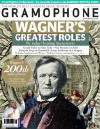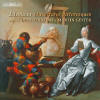Texte paru dans: / Appeared in:
*

GRAMOPHONE (05/2013)
Pour s'abonner /
Subscription information
BIS
BIS1979

7318599919799 (ID292)
Consultez toutes les évaluations recensées pour ce cd
~~~~ Reach all the evaluations located for this CD
Reviewer: Lindsay Kemp
PoIish period-instrument group takes to Telemann
This Telemann disc — the first from admired Polish outfit Arte dei Suonatori — brings together two familiar strands from the composer’s orchestral output: the wittily pictorial ouverture-suite and ‘Polish’ folk music. On the pictorial side are the suites known as Völker-Ouverture (‘Les nations’), setting out the supposed characteristics of the Turks (wild and exciting), Swiss (poised and courtly), Muscovites (they have lots of church bells) and Portuguese (they like dancing), and Tragi-comique, which resourcefully seeks to represent three illnesses and suggested remedies — the winces of the gout movement sound particularly painful, the 62 seconds spent in a brothel, er, frenzied. A third suite is without title, its obvious pictorial element limited to a gavotte-like movement entitled ‘Harlequinade’, but is an engaging work nevertheless, coloured by that gorgeously Germanic sound of three oboes. The folk flavours come in the form of two works Telemann sent into the world under the title concerto polonois ; they feature no soloists but plenty of the ‘barbaric beauty’ Telemann warmly appropriated from folk musicians in Silesia.
None of these pieces is new to the catalogue — the Akademie fur Alte Musik Berlin, Freiburg Baroque, Collegium Musicum 90 and Music Antiqua Köln have covered them all between them — but they are not to be found anywhere else in this particular combination. Arte dei Suonatori play them with neatness, clarity and buoyant tone. Their fine ensemble spirit is much in evidence and the music’s good-hearted energy draws greater interpretative vim from Martin Gester than did Handel’s Op 6 Concertos on their last collaboration (2/09). Yet Gester’s approach could hardly be described as playful when compared to others in this kind of repertoire. Even the added percussion in certain movements of the Völker Ouverture, on the face of it a nice idea, seems rather straight-faced — a shame when the invitation to have fun seems to be so clearly there in the music.
Cliquez l'un ou l'autre
bouton pour découvrir bien d'autres critiques de CD
Click either button for many other reviews


